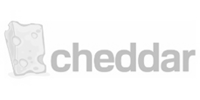Contents For This Post (Click to Open)
Not only is owning a home considered one of the American Dreams, it’s can also be a great investment . However, on the surface, it may not look great compared to stocks.
Historically, the stock market has produced between 9-10% returns, whereas real estate has averaged just above inflation at about 5.5% since 1940.
In addition to the lower returns, there is also the downfall of your equity being “trapped” in the home, making it very hard to access.
The solution — a home equity loan.
A home equity loan allows you to borrow against the equity in your home’s value. This type of loan can give you access to a large amount of money for big expenses. There are two common types of home equity debt: home equity lines of credit (HELOCs) and home equity loans.
Equity is the difference between how much your home is worth and how much you still on your mortgage.
There are a few common rules about home equity loans. First off, your home must be worth more than you owe on it. Otherwise, it wouldn’t make sense for the lender to loan you any money. Secondly, you do still have to go through a similar process and paperwork as when you originally bought the home.
What Is a Home Equity Loan?
A home equity loan is a type of loan in which you can use the equity of your home as collateral.
The loan is usually determined by the value of your property and how much equity you have in the home. Lenders tend to let you borrow up to 75% – 85% of your total home value.
Example:
Let’s assume your home is worth $400,000 and you owe $150,000 on your mortgage. This means you have $250,000 of equity in the home. Typically, your lender will allow you to borrow 75% of the equity you currently have in your home.
$400,000 (home value) x 75% = $300,000
Next…
$300,000 – $150,000 (current mortgage balance) = $150,000
This means you are eligible to receive a $150,000 for your home loan. Again, this is a rough estimate but it shows you how to determine the amount of a home equity loan.
Simply plug in your specific mortgage numbers or use a home equity calculator to determine your estimated home equity loan amount.
How a Home Equity Loan Works
A home equity lump sum loan will give you all of the money at once, unlike HELOCs which we will cover next. This makes home equity loans great for projects where you know the total amount needed.
Home equity loans are generally used to finance big expenses such as a college education, medical bills, and home remodels. Most of these expenses are pre-determined and a home equity loan can help pay for those major expenses all at once.
Home equity loans are also typically fixed interest rate loans and become a second mortgage to the home. Like your primary mortgage, you pay a fixed amount each month for a set period of time. Home equity loans are true amortized loans, meaning you are paying part interest and part principle for the life of the loan.
Pros of Home Equity Loans
Like any type of loan, there are pros and cons. Here are the biggest advantages and benefits of using a home equity loan.
1. Predictability
One of the biggest pros of a home equity loan is the payments are the same amount each month. You won’t have to worry about fluctuating interest rates as you might with a HELOC. This makes it much easier to budget for the remaining term of the loan.
2. Fast Closing Times
Home equity loans are usually paid out much faster than other types of loans like a cash-out refinance. Most home equity loans only take 2-4 weeks to go from application to receiving the cash.
3. Low-Interest Rates
Another benefit of a home equity loan is the low interest rates. If you have a major expense, such as medical bills or a major home renovation a home equity loan can give you a much better interest rate than your credit card or personal loan.
Most credit cards average between 10-25% APR and have much smaller limits as well.
Personal or unsecured loans tend to have a higher limit but also much higher interest rates. Home equity loans give you the best of both even if you have to pay for closing costs.
4. Keep Your Mortgage Payment
If you have a low mortgage rate currently you don’t need to sacrifice it for securing a home equity loan. While you can refinance to get a lower home loan interest rate as well, if it doesn’t make sense you can keep the original lower mortgage rate.
5. High Loan Amounts
Compared to other loans, you can borrow a much larger amount with a home equity loan. With the rising cost of tuition, this makes a home equity loan a great option to pay for education expenses or high ticket items.
Cons of Home Equity Loans
While there are plenty of perks to home equity loans there are some downsides to be aware of as well. Here are the four greatest concerns for home equity loans.
1. More Interest
When you get a home equity loan you receive a lump sum, even if you don’t need the entire amount right now. For example, if you are paying for college annually or a remodel in stages you will pay bits of it over time. However, a home equity loan will start accruing interest on the entire amount borrowed even if you don’t need the entire amount right now.
2. Less Flexible than HELOCs
As number one showed, home equity loans aren’t very flexible if you don’t need all the money at once. HELOCs are a better option if you need the money on a revolving basis like a credit card.
3. Potential Home Foreclosure
While home equity loans are secure for the lenders, as your home is used as collateral, this can be a potential risk you could face. If you are unable to repay your loan the bank can take action to recoup.
They can sell your home to recover their funds by foreclosing and forcing you out. This is one of the worst things that can happen to your credit score as well!
Also, it’s always a good idea to automate your loan payments so you never miss a payment and risk potential foreclosure. Many banks will offer a perk such as a lower interest rate or cash back bonus if you do choose to set up automatic payments.
4. Overextend Your Budget
A home equity lump sum loan can give you a huge cash surplus and make it tempting to spend on unnecessary items. Instead, only tap into a home equity loan if you need the money to improve your life. This could be through education, paying off high-interest credit card debt or remodeling your home, which will increase the resale value.
What About a HELOC?
A home equity line of credit (HELOC) is both similar and different to home equity loans. Both of the loans are borrowing against the equity you have in your home, however a HELOC does not force you to take out the entire loan at once.
A HELOC (home equity line of credit) is an open line of credit, backed by the equity in your home, where you can draw from the loan at any time, pay off the balance, and re-draw off the loan again.
You also have a certain equity limit (like your credit card limit) that is available to you to borrow and eventually pay back. HELOCs aren’t one-time transactions and you only pay interest on the amount that you actually withdraw from the loan. The other major difference is that HELOCs come with variable interest rates.
Variable interest rates simply mean your rates may rise and fall over the life of the loan. They follow market conditions and will go up or down based on what interest rates are currently doing.
You will also notice variable interest rate loans tend to offer an introductory rate of 6-12 months or may offer some kind of bank promotion for opening a HELOC. However, after the introductory period the interest rate goes up to match the current market.
How a HELOC Works
HELOCs are structured differently than most loans. The length of the loan can be anywhere from 5 – 30 years but has two separate phases known as the draw period and the repayment period.
The draw period is when you can borrow money from the credit line and varies depending on the term (years) of your line of credit. During this draw period, you can borrow when needed and are only required to make payments on the interest, not principal.
After your draw period is over you enter the repayment period, which means you can no longer draw money from your line of credit. Your repayment phase is the period of time to pay for both interest and principal.
Pros of HELOCs
Most of the cons of home equity loans are the pros of HELOCs and vice-versa.
1. Cheaper Than Home Equity Loans
HELOCs can be cheaper than home equity loans and depend on how long you hold the loan and the interest rates. While it’s listed as a pro, variable interest rates are also a major con as well as markets fluctuate.
2. No Unused Interest Payments
One major pro of HELOCs is that you don’t have to waste money on unused interest. If you are paying for your child’s education you will only pay interest once you tap into your line of credit for each tuition payment.
3. Low Introductory Rates
Another big pro of HELOCs is the low introductory rates. The terms usually range from 6-12 months which makes the interest payments very low for the few months to a year.
Cons of HELOCs
1. Variable Interest Rates
The biggest con to HELOCs are the variable interest rates. After the repayment period a lot can change in the market and interest rates can fluctuate both up and down.
No one can predict the future, but a safe bet is to keep in mind that we have seen historically low interest rates over the past decade and things tend to go both up and down. Therefore, variable interest rates do make it difficult to plan ahead and budget accordingly.
2. More Complex
With a fixed rate rate home equity loan, you know what the payment is going to be every month. But a variable interest rate loan is much more complex. The introductory offer is lower and easy to understand but gets more complex as the loan ages.
3. Repayment Period
Once your draw period is over and you enter the repayment period your payments can grow substantially. This again depends on if you paid extra principal in the draw period. If not, your payments can increase and be a huge financial burden on your budget.
4. Possible Lender Issues
With a home equity loan, you receive the money and don’t have to worry about much else once it’s been deposited. But with HELOCs lenders can abruptly freeze or reduce your amount with little notice. Additionally, some lenders require you to draw a minimum amount once the loan is approved, even if you don’t need the money yet.
How to Get a Home Equity Loan or HELOC
To apply for a home equity loan or HELOC, you should apply with several different lenders and shop around for the lowest interest rates and the best bank promotions. You may find the best rates and promotions at local banks and credit unions.
Check Your Credit Score
The first thing you need to do to get a home equity loan is to check your credit score. On average, the minimum credit score to get approved for a HELOC or home equity loan will be around 620. Of course the higher your score the lower your interest rate will be and vice versa. Additionally, HELOCs tend to want a higher average annual credit score than home equity loans.
Know What You Intend to Borrow
Once you have your credit score at a high enough level figure out what you intend to use the money for. Try to be detailed and figure out the exact amount you need for education, medical bills, a home improvement project, a business venture, or whatever it is you will need the money for. This will help determine which type of loan you should get so you can factor in repaying the loan in the future.
Have Equity in Your Home
If you just bought your home you probably don’t have much equity in your home yet. Make sure that you have enough equity in your home or live in an area with rising home prices to ensure you have enough equity. Most lenders want at least 20% of your current home value in equity before offering a loan.
Be Ready for Closing Costs
Like your original mortgage, you will have to pay closing costs for your loan amount. Closing costs pay for the same expenses as your original mortgage. They include title search, appraisal, attorneys fees, and an application fee. Don’t forget to factor that in by saving money or lumping it together into your loan amount.
Also, closing costs are never set in stone, so make sure to shop around or ask for a better deal than your initial offer. If you don’t ask, the answer is always a “no”.
Using a HELOC to Pay Off Your Mortgage Faster
Jordan Goodman came on the Money Peach Podcast to discuss how you can use a HELOC to pay off your 30 year mortgage in 5-7 years. Not 5-7 years earlier, but paid off in 5-7 years.
How is this possible? It all has to do with the interest. Mortgages are amortized loans where the interest is calculated based on the balance on the first day of the month. HELOCs are not amortized loans and the interest is based on the average daily balance.
To learn more, listen the the podcast with HELOC and mortgage expert, Jordan Goodman.
FAQs for Home Equity Loans and HELOCs
Are HELOCs and Home Equity Loans Tax Deductible?
There were some changes in the Tax Cuts and Jobs Act of 2017 which now only allows you to deduct the interest from a HELOC or home equity loan if the loan is used to “buy, build, or substantially improve the taxpayer’s home that secures the loan”
How are Home Equity Loans Paid Out?
When applying for a home equity loan ask the lender if there is minimum withdrawal amount and the maximum amount after your account is opened. Also be sure to ask how you can spend your money from a HELOC. Usually, it’s a combination of credit cards, checks or both.
What Type of Loan is Best For Debt Consolidation?
If you have a credit card or another type of high-interest rate I’d recommend choosing a fixed-cost, lump sum home equity loan. This will ensure you can access the money quickly, pay off your debt, and have a fixed interest payment. The last thing you want after paying off debt is a variable interest rate that will fluctuate in the future.
Are All Home Equity Loans 30 Years?
No, home equity loans can range from 5-30 years. Make sure you ask your lender for rate differences for each length of the loan before you move forward with your loan.
Are Home Equity Loans a Good Option For Retirement?
While technically you can use the funds from your home equity for living expenses or retirement I recommend checking out a reverse mortgage only as a last option if you really need money in retirement.
A reverse mortgage is a type of loan for seniors over 62 years old that allows them to convert home equity into cash with no monthly mortgage payments. One thing to keep in mind are the fees associated with reverse mortgages can be extremely high.
Evaluate If a Home Equity Loan is Right for You
Hopefully you now fully understand the two main types of home equity loans. There are pros and cons to both types of home equity loans and will depend on your own circumstances when choosing.
If you need a large amount of money quickly, a lump-sum-fixed-cost home equity loan is your best option. The repayment is simple, easy, and you will enjoy a fixed rate for the entire length of the loan.
If you need more flexibility and don’t want to overpay interest, then a HELOC might be a better option. Remember that HELOCs are a more complex loan and have more uncertainty with variable interest rates but you also benefit from having an open line of credit without having to pay interest if your balance is zero.
The biggest thing is to make sure that you absolutely need a home equity loan. Please don’t use one of these options just to take a vacation or buy a new car. The best bet is utilize a home equity loan or HELOC to make smarter decisions with your money…not things you may regret years down the road.
Do You Currently Have a Budget?

Whether you’re looking to open up a HELOC or get a home equity loan, having a budget in place beforehand will only help you.
Here is the same budget I use everyday which allows me the freedom to manage my money in a simple way.






